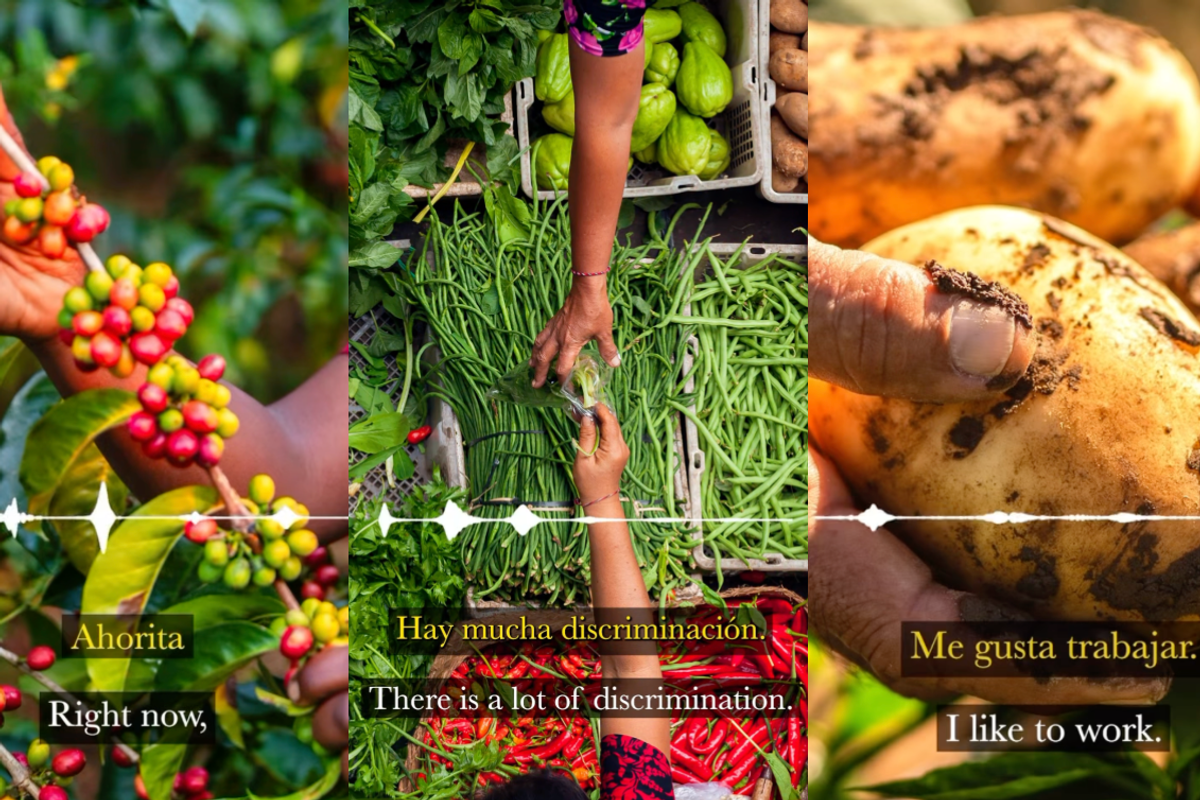The farmworkers who feed America have a message for all of us
Undocumented farmworkers keep our nation’s food supply running.

This holiday season, as you gather around the table with your loved ones, it’s important to remember the people who put food on our tables and the connection that we share. The moment you pick up a carrot, peach, or apple in the grocery store, you’re symbolically shaking hands with whoever harvested it. But for most of us, that handshake goes unnoticed, and we forget about the people behind our food.
In the United States, more than two-thirds of farmworkers are immigrants, and most have lived here for over a decade. Right now, these men and women face increasing threats under the administration’s mass deportation policies. As consumers, it’s more important than ever that we recognize the people who hold up our food system – not only do they provide a vital service to our country, but they are longstanding community members whose contributions are woven into the fabric of our daily lives.
Meet Alejandra, Ana, and Olivia
Over the summer of 2024, the National Immigration Law Center and United Farm Workers hosted a series of legal clinics in Bakersfield, California, and brought together immigrant farmworkers, volunteers, and community organizers to speak openly about the hardships that come with their work – as well as what motivates them to do this trying work: their children, families, and aspirations for life in the United States.
Harsh working conditions are one such hardship, says Alejandra, who has spent the past five years harvesting everything from carrots to cherries, sometimes up to 10 hours each day.
Alejandra takes pride in how hard she works – but she also describes her job as “difficult” and “exhausting” even in the best of times, in part due to the harsh weather conditions in the area.
“If you know the Central Valley, you know it has very extreme weather, both when it gets very cold and when it gets extremely hot,” she said.
Ana, who supports her 12-year-old son with the wages earned from her work, has also dealt with demanding physical labor and extreme weather. But the hardest part of her job, she says, is the injustices farmworkers face, often because of their gender and immigration status.
“They discriminate against women. They want women to work like men do – and, of course, we can,” Ana said.
But she finds hope in helping other farmworkers stand up to unfair treatment and unsafe working conditions. “To help farmworkers is to help our community. So that people find out that when we raise our voices, anything is possible.”
Olivia, who works long hours harvesting food to support her family, says she is passionate about her work and takes pride in what she does.
“I like to work. I like to support my family by helping them get ahead,” she said.
But supporting her family is not without sacrifice. Like Alejandra and Ana, she’s had to work under harsh conditions and faces the same discrimination, exploitation, and danger as her fellow farmworkers.
We are fighting “...under the blazing sun, in the rain, in the muddy puddles…but we are still here, and we don’t give up.”
“Everything that’s in the supermarket is there because of us, because of all the farmworkers. We want to be valued and respected, and we don’t want any more deaths or discrimination.”
Why recognizing the farmworkers behind the food helps all of us
Ignoring the people who harvest our food disconnects us from the food itself and the planet it grows on – and it lets an exploitative food system go unchecked.
“The reality is that most farmworkers are here with undocumented status, and oftentimes their poverty wages don’t allow them to feed their own families,” said Roman Pinal, National Vice President and Organizer for United Farm Workers. “Today, that means many workers experience abuses, violations of their rights, and that’s not right in this country.”
When the labor behind food goes unnoticed, it’s a problem for all of us – not only because it disconnects us from our food, but because it makes it easier for companies and consumers alike to overlook human rights abuses. When we’re mindful of who is behind the food, we’re able to build a safer, more equitable food supply for all of us.
To learn more and support the farmworkers who feed America, visit the National Immigration Law Center.
This article is part of Upworthy’s “The Threads Between U.S.” series that highlights what we have in common thanks to the generous support from the Levi Strauss Foundation, whose grantmaking is committed to creating a culture of belonging.



 A man saying "be quiet."via
A man saying "be quiet."via  A woman zipping up her mouth.via
A woman zipping up her mouth.via 

 Three women sit on a blanket in the park.
Three women sit on a blanket in the park. 
 People practicing on the driving range. via
People practicing on the driving range. via  A group of people playing golf. via
A group of people playing golf. via 